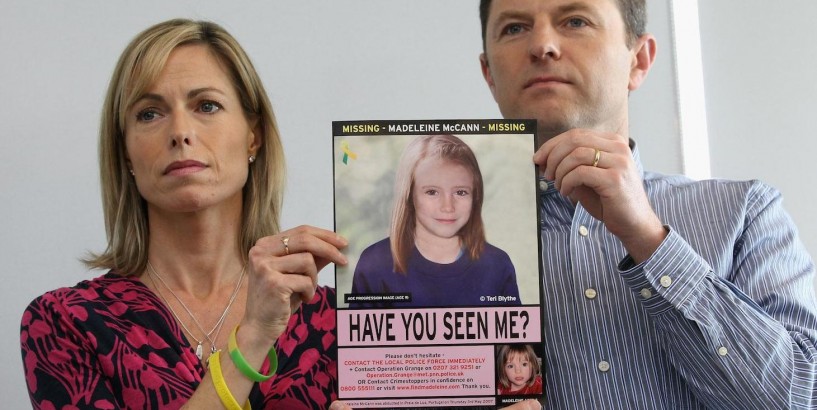I n the first episode of the documentary series The Disappearance of Madeleine McCann , which arrived on Netflix this morning, Portuguese reporter Sandra Felgueiras recalls having an epiphany. It was 2007, a three-year-old girl had just gone missing during a family holiday to the Algarve, and Felgueiras had been sent to cover the case. She watched Madeleine’s parents, Gerry and Kate, make their first public statement to the press. As Gerry spoke, voice breaking, of his “anguish and despair”, his wife stared at the ground, clutching her daughter’s pink cuddly toy. “This is not news,” Felgueiras remembers thinking. “This not a story. This is their life.”The same argument could be made against this eight-part documentary’s very existence. In the tradition of other recent true crime phenomena – Serial, Making a Murderer, The Jinx – the series pores over the details of Madeleine’s disappearance, taking its viewers through every step of the case via contemporary news reports, interviews with witnesses, journalists and investigators, and dramatised re-enactments. An orchestra swells beneath the most intense moments. There are sweeping, cinematic aerial shots of the town and its surrounding beaches. Actors recreate the worst evening of the McCanns’ life, when they discovered their daughter had been snatched from her bed.Aside from the audio of a few archive interviews, the McCanns themselves are conspicuously absent from the documentary. They refused to participate. “We did not see – and still do not see – how this programme will help the search for Madeleine,” a statement from the family reads . “And, particularly given there is an active police investigation, it could potentially hinder it.” That didn’t stop the streaming platform going ahead with it. True crime is big business, after all.From extras.It is hardly a new phenomenon. In the mid-16th century, true crime pamphlets, which laid out the gory details of recent murders, were widespread in Britain. They continued to be popular for several centuries, before evolving into newspaper columns, books, and now TV shows, podcasts and films.But they have never been quite so popular as they are now – having transformed from schlocky, daytime TV to something glossier and higher brow. True crime is not a guilty pleasure anymore, but a national pastime. It is no longer required to have an opinion on who should have been voted out of Simon Cowell’s latest talent show, but on whether Adnan Syed killed Hae Min Lee ( Serial ); whether Steven Avery has been wrongly imprisoned ( Making a Murderer ); or whether Robert Durst’s bathroom murder confession, caught on his microphone on HBO series The Jinx , was genuine. But as the popularity of such programmes has risen, so too has the ethical dilemma that surrounds them.“If deemed a ‘good enough story’, private grief becomes public property,” wrote Lauren Bradford, whose mother was murdered by her father in 1991, in an article for The Guardian . Her family’s tragedy was turned not into a documentary, but an ITV drama called The Secret ; her piece drew comparisons between the two. “News is important, and when handled factually it serves the public interest,” she wrote. “But there is a clear distinction between public interest and what is of interest to the public – the latter is problematic.” In a 2011 report of families who had lost loved ones to homicide, over 80 per cent of them were found to be suffering from trauma-related symptoms. Having that trauma dredged up could be hugely triggering.
© 2024, Copyrights gulftimes.com. All Rights Reserved









